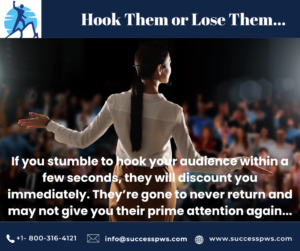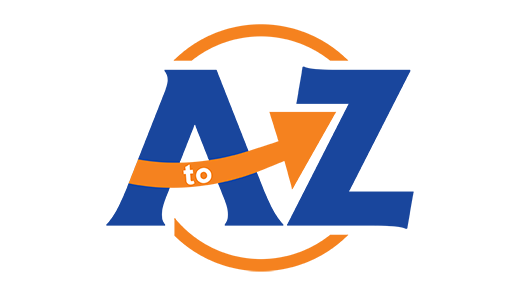17 May Accelerate Your Speaking Abilities
3 easy-to-use tactics you can implement right away to take your presentation skills to the next level instantly
Les Brown, one of my favorite motivational speakers, said: “Communication is the number one tool to succeed in any endeavor.”
Don’t become a handicapped leader
Whether you are a professional, entrepreneur, or a leader, and regardless of your industry, you become handicapped if you fail to communicate effectively.
One of the communication skills you need is to communicate from the stage or in front of a camera. This is especially critical if your job description or leadership role requires you to present regularly.
Earlier this week, I facilitated a two-day intense and hands-on webinar to empower a small group of senior leaders.
One of my favorite topics
By the way, this is one of my favorite workshops. You may ask why?
While helping participants refine their presentation competencies, in the process, I also use each opportunity to refresh my memory and further improve certain aspects of my speaking skills. You too… Regardless of how experienced you may be, you should keep working on your presentation skills and take them to the next level. And this is my hope that the three straightforward tips I’ll be sharing soon may help you to do just that.
Main takeaways from the workshop
From this 2-day intense workshop, participants gained:
- Latest scientific insights concerning why we may feel nervous and how to channel it.
- Effective approaches to connect with our audience at a deeper level from the get-go.
- Tools that assist us in preparing and delivering our speeches to change minds and hearts.
- Techniques on how to start with a high-impact introduction, make smooth transitions, elevate our energy, and remain connected with the audience throughout the speech.
- Strategies on how to close with a high tone and handle the Q&A session smartly.
- And more.
Each participant also got a couple of opportunities to present for a few minutes. They got public (from myself and other participants) and one-on-one feedback and coaching from my colleague.
In this blog, let me answer these three questions and give you just three tactics I shared in the webinar:
- How do you hook your audience from the get-go?
- What should you do when you are under pressure and stressed out before you step on the stage or in front of the camera?
- When you forget what you have to say in the middle of your speech, how do you recover quickly without the audience knowing?
What I will be sharing with you are some of the straightforward tactics I shared in the workshop. It shouldn’t take you long. You don’t need to make lots of effort to implement them in your next speech.
Hook them from the get-go or lose them forever
If you don’t grab your audience’s attention from the start, you may lose them forever, especially if you only have limited time. You may not get another chance to reengage and reconnect with them.
If you stumble to hook them within a few seconds, they will discount you immediately. They’re gone to never return and give you their prime attention.
 I’ve seen many speakers treat the first few seconds casually. Some step onto the stage and waste a golden opportunity to hook the audience. They may start the speech by:
I’ve seen many speakers treat the first few seconds casually. Some step onto the stage and waste a golden opportunity to hook the audience. They may start the speech by:
- Welcoming the audience,
- Thanking organizers, and/or
- Talking about their background, and so on.
Of course, once you hook them, you may do the above, but not as soon as you step on the platform.
In front of you are highly distracted people. Unlike in the past, attention span is shrinking.
Your audience, consciously or unconsciously, only have a few seconds, max a few minutes, to prove to them that you’re worthy of their precious time. If they don’t find you, they will turn to their laptop or cell phone or entertain some unrelated thoughts in their heads. They won’t lend you their most attention.
Use something grand as an opening. Something that surprises, shocks, or stuns them. It could be a quotation from someone they already know and respect. It could be a staggering stat. It could be a hot topic on social media or a viral video on YouTube, what have you… Of course, whatever you use to hook them, it must be related to the topic you’ll be covering.
Take care of yourself before you take care of your audience
Sometimes, you may find yourself speaking without having enough time to prepare, or you may face a very hostile audience. You may also be uncomfortable or less knowledgeable about the topic you’re speaking about. For whatever reason, when you’re under pressure, chances are you cannot perform at your best. You cannot serve your audience well.
In such situations, why not find a quiet place for a few minutes to cool yourself down? Why rush it through? Why not slow down for a few minutes?
You may already know this. When you’re in an airplane, they advise you first to put the mask before you attempt to help others. Others could be your own spouse or children. The same applies here. You cannot give your best and serve your audience unless you first take care of yourself.
Whatever you do to be at your best is for their own best interest. It’s not a selfish act…
These days, I don’t experience much pressure before stepping on the stage or sitting in front of a camera. However, in the past, I used different tactics to help me calm down, conserve my energy, stay present, go all in, and go out to give my best. Either in my car or in the restroom, or anywhere where I can be alone for a few minutes, I do one or a mix of these:
- Breathing exercises to slow down my state of being
- Quick meditation to bring down my brain’s wavelength
- Brief success visualization to stop my brain from employing fight or flight on me but rather help me be present in the NOW
- Enchanting and pep talk myself to generate inspiration from within, and so on.
If you have used one of the above tactics or something similar before, which one(s) is your favorite? Why? If you haven’t yet, try the one you feel most comfortable with first, and see if it works, and then keep trying the others. After a while, you may find the one (s) that best serve you when you find yourself under intense pressure.
Tap into the magic of PAUSE
As I worked on my speaking skills in my early days, I remember speaking fast, especially when I was in the zone. As a result, those audience members who weren’t familiar with my accent had difficulty catching up with my speed.
One of the methods I used to address this issue was to become mindful whenever I caught myself speaking faster. Initially, pausing in the middle of my speech was challenging. I needed to remind myself consciously and constantly. Now, it has become a habit and happens naturally.
Of course, now, I don’t use pauses to slow down alone. I’m strategic about it. Following a punchline- after saying something I want the audience to pay attention to, I pause. I also pause before the start, during transitions, and end of my speech, I pause. Your audience, too, they need processing time to capture the most important messages of yours in each speech.
Like the spaces between a music’s notes are necessary to beautify the music’s melody, so are a few pauses in a speech.
I hope that by implementing one or all three tactics, you take your presentation skill to the next level.
If you need any help to improve your or your team’s speaking competencies, reach out via [email protected]
